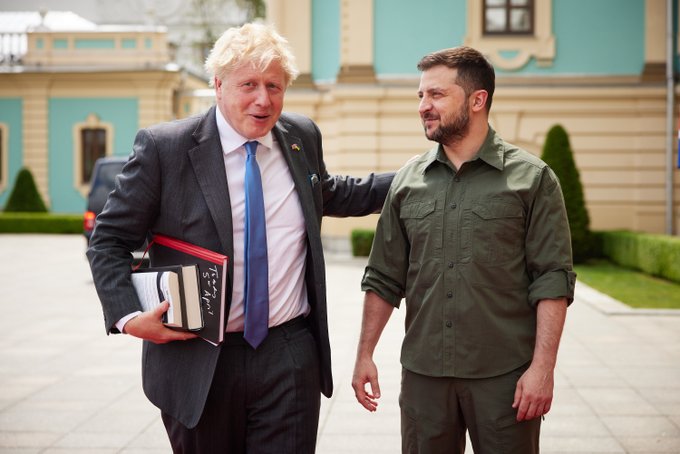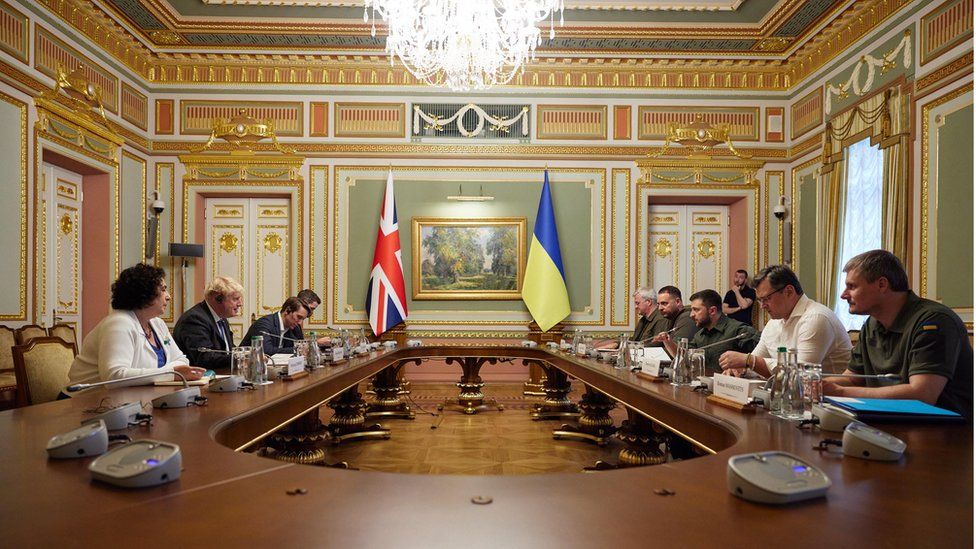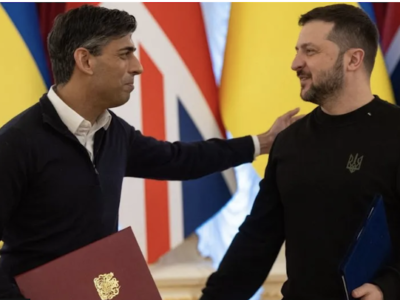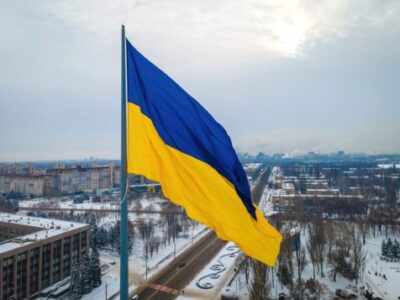Boris Johnson has announced a training programme for Ukrainian forces he said could “change the equation” of the war. The prime minister met President Volodymyr Zelensky during a surprise trip to the nation’s capital Kyiv. He pulled out of a conference of northern Tory MPs at the last minute and before the Wakefield by-election.
Defence Secretary Ben Wallace said PM’s Kyiv trip had been “important”, adding he was not “affronted” by him cancelling speaking at the conference. But Henri Murison, director of the Northern Powerhouse Partnership business group, told the BBC it was a “missed opportunity” to engage with his MPs and people from the region. “As much as I value and think the importance of him being in Ukraine is significant, the issue is timing. The prime minister could have done that potentially another time.”
Mr Johnson was making his second visit to Ukraine since Russia invaded the country in February. He had been due to speak at a conference in Doncaster ahead of the by-election in Wakefield, which was triggered after Tory MP Imran Ahmad Khan was convicted of sexually assaulting a 15-year-old boy.

Mr Berry, the leader of the Northern Research Group group of Conservative MPs, said Mr Johnson’s decision not to attend the conference was “not a snub”. But he later told Channel 4 News: “Clearly, people were disappointed. We had 30-plus colleagues here and 400 members.” Mr Wallace said such visits had to be organised in “total secrecy” and it was important for Mr Johnson to show support for an ally that was at war.
“Helping Ukraine win and trying to help at home are linked. Part of the inflation we see comes from gas and food prices which are partly driven upwards because of this conflict,” Mr Wallace tweeted. Before turning up in Kyiv, Boris Johnson had been due in Doncaster to address some of his MPs from across the north of England. They were poised to press the prime minister for more investment and local powers, and possibly pose tricky questions on taxation levels and the cost of living.
Jake Berry, the group’s chair, insisted the decision to head to Ukraine instead of Yorkshire wasn’t seen as a snub, saying the prime minister’s plans can understandably change. But there was a clear disappointment from some MPs at the last-minute cancellation – and a warning that Boris Johnson had to deliver for those in the midlands and north of England.

Boris Johnson’s response to the war in Ukraine is regarded within his party as something he has handled well. But with questions over his leadership and two difficult by-elections in Wakefield and Tiverton and Honiton taking place next week, his domestic woes aren’t going anywhere.
Speaking at a joint press conference earlier with President Zelensky, Mr Johnson outlined the UK’s training programme for Ukrainian troops, saying it would harness “that most powerful of forces, the Ukrainian determination to win”. “Two months on from my last visit, the Ukrainian grit, determination and resilience are stronger than ever, and I know that unbreakable resolve will long outlive the vain ambitions of President Putin,” he said.
Downing Street said the UK-led training scheme would have the potential to train up to 10,000 Ukrainian soldiers every 120 days and would allow them to “accelerate their deployment, rebuild their forces and scale up their resistance”. Soldiers would learn “battle-winning skills for the front line, as well as basic medical training, cyber-security and counter explosive tactics”. The government added international partners would also be invited to host the programme. If the offer is accepted by Mr Zelensky there would be discussions about the size of the training operation, which is expected to take place outside of Ukraine.
The previous Operation Orbital saw the UK train more than 22,000 Ukrainian personnel from 2015 up until the Russian invasion of Ukraine. No 10 said the leaders also discussed how the UK could “play a pivotal role in ending the blockade of grain”. Mr Zelensky’s Telegram account posted a message saying: “Many days of this war have proved that Great Britain’s support for Ukraine is firm and resolute. “Glad to see our country’s great friend Boris Johnson in Kyiv again.”
Mr Johnson’s trip comes after visits to Ukraine by European leaders including French President Emmanuel Macron and German Chancellor Olaf Scholz. Following their trip, the European Commission has backed Ukraine’s bid to be given candidacy status to join the EU – bringing it one step closer to joining the bloc.
![]()





